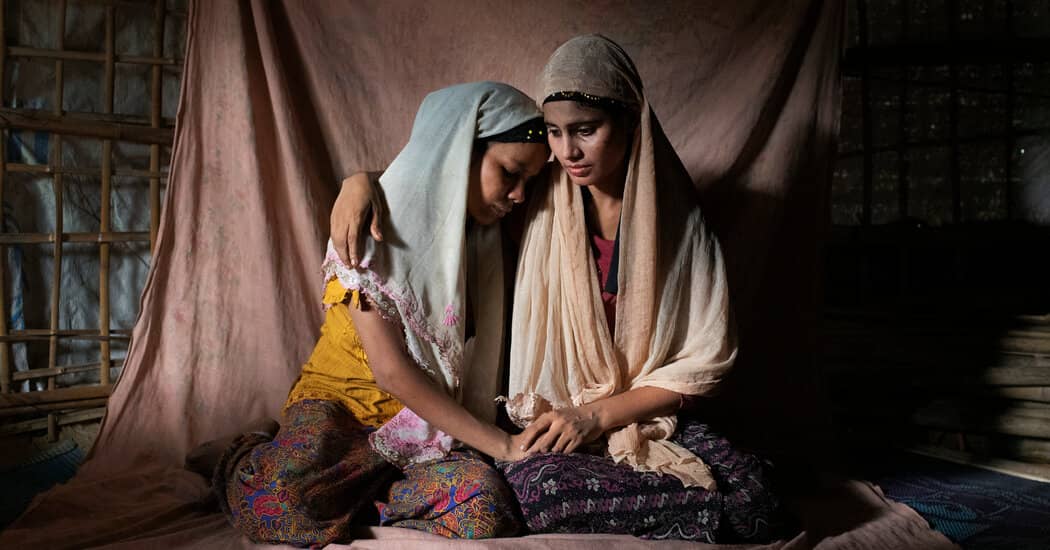Brutally persecuted for years by the military in Myanmar, the Rohingya ethnic minority has now become the target of one of the junta’s most formidable rivals in the country’s civil war.
Brutally persecuted for years by the military in Myanmar, the Rohingya ethnic minority has now become the target of one of the junta’s most formidable rivals in the country’s civil war.
Reporting from Teknaf, Bangladesh
When the bombs started falling, they were almost beautiful — like the purple blossoms of the banana tree, Manwara and her sister Shamshida would recall later.
Their family was on the run, escaping the mortar fire that drove them from their home in Hari Fara, one of the last refuges for Myanmar’s Rohingya Muslim minority. They left their village in August, only to be hit by a rain of bombs released from drones. The strikes killed their parents. Their other three sisters, missing, are presumed dead.
They were among thousands of ethnic Rohingya families fleeing their villages this summer amid a new wave of targeted violence, a horrible echo of the ethnic cleansing by Myanmar’s military that killed thousands and exiled hundreds of thousands in 2017.
This violence was not at the hands of the military, though. Instead, it was from a pro-democracy rebel group that was raised to fight the army. The rebels’ political aim may be different, but the persecution they are inflicting on the Rohingya — airstrikes, mass arson, sexual violence — is torn from the government’s old playbook.
No matter who is in control in Myanmar, it seems, it is the Rohingya who suffer.
“Everyone hates us, but I don’t know why,” said Ms. Manwara, 19. “It’s our curse.”
After years of civil war, the military junta that overthrew a democratic, civilian government in 2021 has lost control of about two-thirds of the country’s territory. Yet the victories by the armed resistance — a patchwork of militias fighting in the name of restoring democracy and of securing better rights for the minorities they represent — offer no moral certainty.
We are having trouble retrieving the article content.
Please enable JavaScript in your browser settings.
Thank you for your patience while we verify access. If you are in Reader mode please exit and your Times account, or for all of The Times.
Thank you for your patience while we verify access.
Want all of The Times? .
Source: www.nytimes.com
